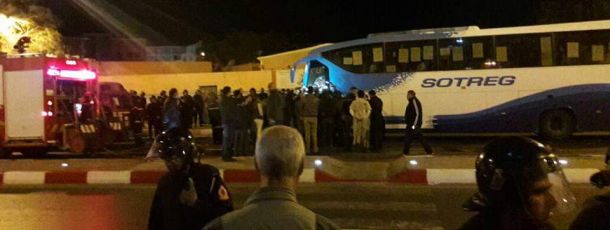
"Coordination of Unemployed Saharawi demand benefits from the territory’s natural resources. Our resources can provide us with jobs", banners on the streets of El Aaiun read during yesterday's protests.
After a temporary lull in frequency, coinciding with the Moroccan King's February visit to the territory he holds under illegal occupation, Saharawis have returned to public protests in demand of employment.
"Our natural resources can provide us with jobs", their banners read.
Protests demanding jobs on the back of the exploitation of Western Sahara's resources have been going on for months in the occupied parts of the territory. As Morocco turns Western Sahara's natural endowments into profit, Saharawis are increasingly demanding their share, or at the very minimum, employment.
Routinely, the Moroccan police reacted violently to the sight of Saharawis protesting. Several protesters are reportedly injured, some needing medical assistance.
The Moroccan security apparatus' presence in Western Sahara was increased well beyond the usual high levels for the occasion of the royal visit, deterring most demonstrators. Protests were resumed at the first glance of the security situation turning back to 'normal' levels - which are in itself aberrantly high for an area the Moroccan regime styles as a part of the national territory just like Tangiers, Marrakech or Rabat.
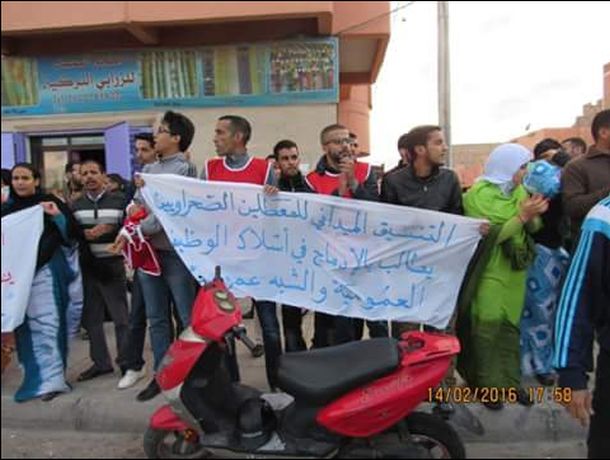
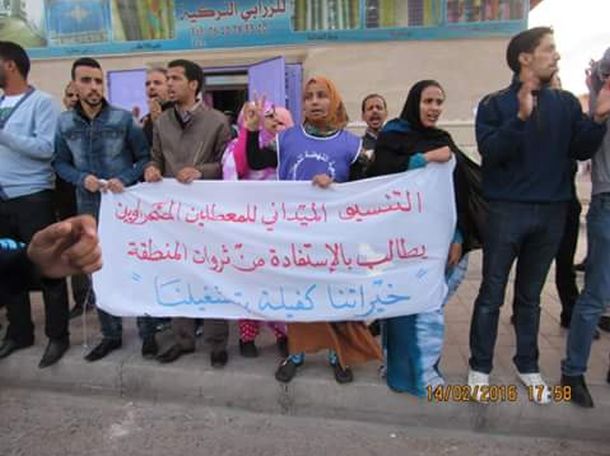
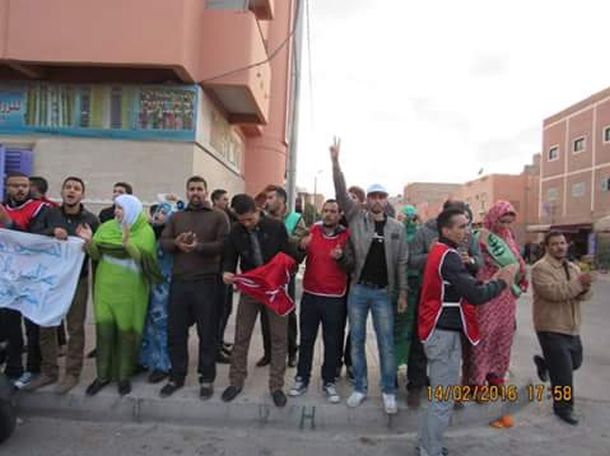
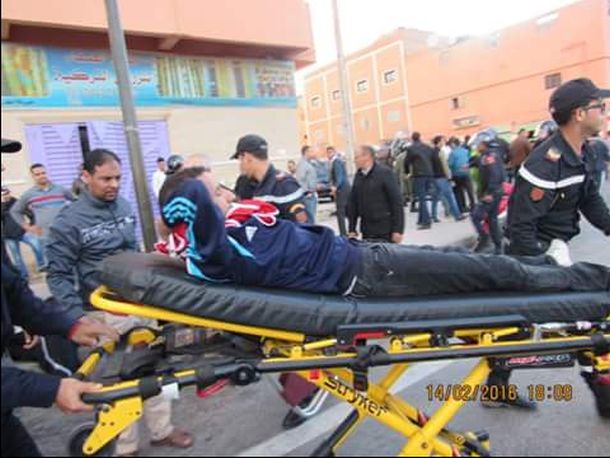
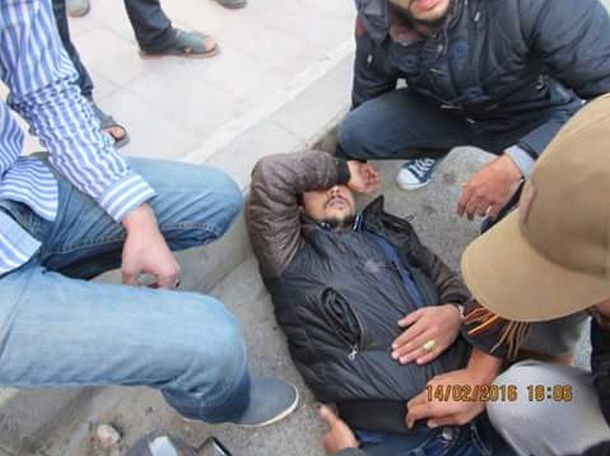

Deadly self-immolation in protest of exclusion of Saharawis
Morocco grants only 5% of fishing licences off Dakhla to Saharawis
New documentation shows that only 4 out of 75 purse seiners that the Moroccan government have licenced to fish on the pelagic stocks off Dakhla, occupied Western Sahara, are controlled by Saharawis.
Unemployed Saharawis set up protest camp in occupied Western Sahara
Unemployed Saharawi youth hi-jacked OCP bus
Last week, a group of around 60 unemployed Saharawis hi-jacked a bus from Phosboucraa, to voice their protest against the Moroccan-owned company's exploitation of occupied Western Sahara's phosphate mine.


